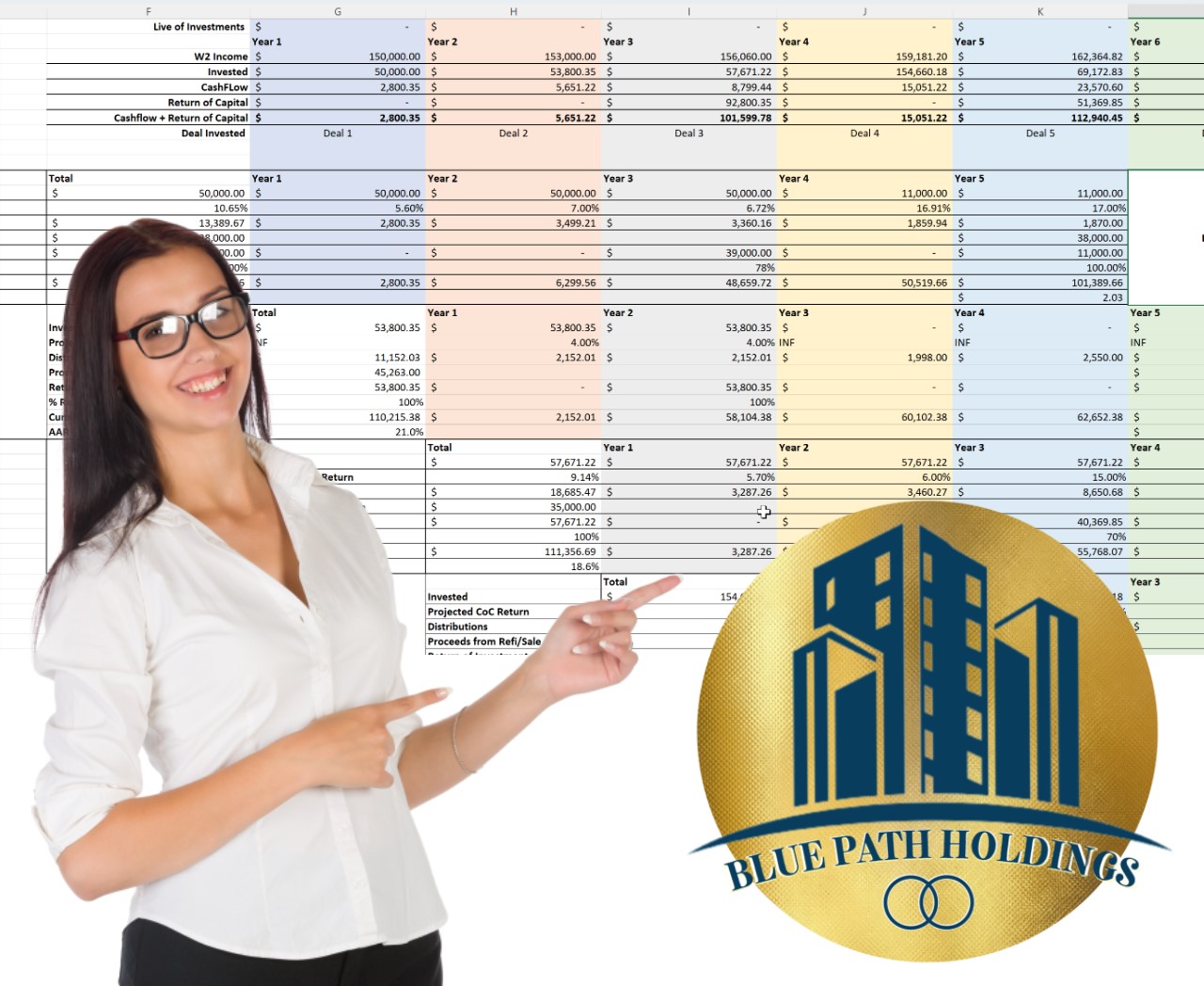Passive Investing in Multifamily Syndications 101
Welcome to the first installment of the Blue Path Holdings blog post. We are excited to have you as a subscriber and look forward to keeping you updated on our latest developments and insights on passive investing in multifamily syndications.
In this edition, we will provide you with an overview of multifamily syndications, a deeper explanation of the syndication structure, and the benefits of passive investing in multifamily syndications, including tax advantages.
Multifamily Syndications: An Overview
Multifamily syndications involve pooling together capital from multiple investors to acquire and manage a large multifamily property. The investors become limited partners in the syndication and typically receive regular distributions from the rental income generated by the property.
Syndication Structure: A Deeper Explanation
The syndication structure typically involves a general partner (GP) who is responsible for finding and acquiring the property, securing financing, managing the property, and distributing the cash flow and profits to the limited partners (LPs). The GP receives a management fee for their services, as well as a share of the profits. The LPs provide the majority of the capital and have limited liability. They receive a preferred return on their investment and a share of the profits once the GP has received their management fee and achieved certain performance benchmarks.
Benefits of Passive Investing in Multifamily Syndications
Passive investing in multifamily syndications offers several benefits, including:
-
Diversification
Investing in multifamily syndications allows investors to diversify their portfolio by gaining exposure to a variety of properties and markets.
-
Professional Management
Investors can benefit from the expertise of the GP and their team, who handle the day-to-day management and operations of the property.
-
Potential for Stable Cash Flow
Multifamily properties generate rental income that can provide stable cash flow to investors.
-
Appreciation
As the property value increases over time, investors can benefit from appreciation in addition to the regular cash flow.
-
Tax Advantages
Passive investors in multifamily syndications may be eligible for tax advantages such as depreciation, which can offset their rental income and reduce their taxable income. Additionally, they may be able to defer paying taxes on their share of the profits until the property is sold.
At Blue Path Holdings, we specialize in acquiring and managing multifamily properties and creating opportunities for passive investors to benefit from the potential of this asset class. We are committed to transparency, integrity, and providing our investors with the highest level of service.
Stay tuned for our next installment, where we will dive deeper into the tax advantages of passive investing in multifamily syndications.
Thank you for subscribing to the Blue Path Holdings Newsletter. If you have any questions or feedback, please don't hesitate to contact us.

 By
By


